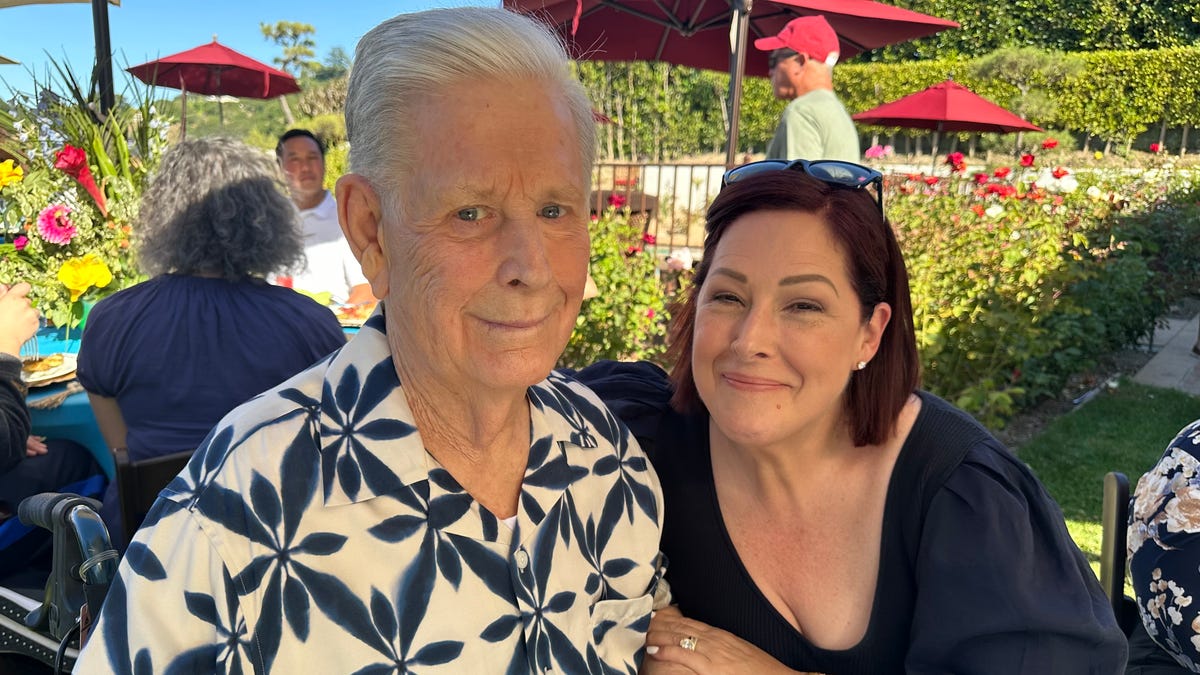‘Ice Bucket Challenge’ is back to raise awareness of mental health
In 2025, participants are doing the ‘Ice Bucket Challenge’ to raise awareness and funds for mental health causes.
“Hold on for one more day.”
Yes, these are the lyrics to “Hold On” by Wilson Phillips. They’re also the mantra by which Wilson Phillips singer Carnie Wilson abides as a champion for all those struggling in silence from myriad health conditions.
“I was my own advocate that had to to advocate for my own depression and anxiety and OCD,” Wilson, 57, says over a Zoom call from Los Angeles. “I suffer from these things, and they’re not debilitating for me. They were at some point, and that’s why I think I was hiding in a closet drinking vodka. I believe it was debilitating. And then it really became debilitating when I was suicidal.” Wilson, the daughter of 82-year-old Beach Boys singer Brian Wilson, is vocal about her sobriety journey and hasn’t drank alcohol in more than 20 years.
As part of her advocacy efforts, she’s partnering with Neurocrine Biosciences on a “Connecting with Carnie” initiative, which looks to support those with the condition tardive dyskinesia (TD). It’s an involuntary movement disorder linked to some mental health medications which can hamper quality of life; more than 800,000 Americans have it, 60% of whom are undiagnosed.
“I want to be the catalyst for them to come out of the shadows and and open up and seek treatment,” she says, echoing her own different but relevant health journey.
‘I know what it’s like to isolate’
Wilson’s happy place is usually her kitchen. But she’s in the middle of a remodel.
“It’s been a little hectic around here,” Wilson says, “crazy, (with) two kids, dogs, and, you know, life, there’s a lot happening, but this is a very exciting time.” She and musician husband Rob Bonfiglio share two daughters, “American Idol” contestant Lola and Luci.
Wilson understands what it’s like to have a lot on your mind, on top of any excess health worries at any given moment. That’s where her empathy for TD patients comes from.
“I know what it’s like to isolate just in general,” she says. “When I was addicted to drugs and alcohol, I remember that feeling of just wanting to hide and not show my vulnerability, that I needed help.”
People may develop TD while taking dopamine-targeted medicines used for depression, bipolar disorder, schizophrenia and more. The condition can affect any body part – tongue, lips, eyes, feet, and further complicate one’s mental health. Anyone taking a psychiatric medication should monitor themselves for any atypical symptoms.
“One of the things that’s hard about it is this movement looks abnormal,” says psychiatrist Dr. Greg Mattingly, president of the American Professional Society for ADHD and Related Disorders. It’s noticeable and “tends to be very stigmatizing.” People will avoid going out to restaurants on account of the shame; it ranges in severity.
“It’s more than just a tremor,” Mattingly adds. “It’s an involuntary movement that’s causing people to become isolated, to become increasingly withdrawn and stop doing things that used to give them pleasure.”
It will likely never go away, but can be treated with certain medications including Ingrezza. Still, there is no cure.
People’s mental health journeys, too, aren’t so linear, cut-and-dry.
“The goal is not happiness,” Wilson says. “The goal for me is balance.”
Carnie Wilson discusses dad Brian Wilson’s mental health journey
Wilson always felt different as a young girl, and turned to sugar and food as she strove for comfort and safety. A mild, chronic depression lay under the surface of her mind. Both her father and grandmother on her mother’s side have dealt with depression, too; her father Brian Wilson also has schizoaffective disorder.
“I’ve watched him really overcome so much, just so so much,” she says, adding that she loves her father “more than anything in the world. And he’s been through a lot, but he’s the strongest person I know. I mean, truly the strongest person.”
She encourages anyone with mental health concerns or symptoms of conditions like TD to get checked out by professionals.
“My father did seek help with his own mental illness, and he’s come to a great place,” she says. “He found the right medication for him that has helped the voices in his head, his own depression and I find a lot of similarities in me. I see myself in him in many ways, and that’s sort of driven by fear, but a lot of drive and a lot of will to survive and connect with people.”
Like father, like daughter.

Leave a Reply